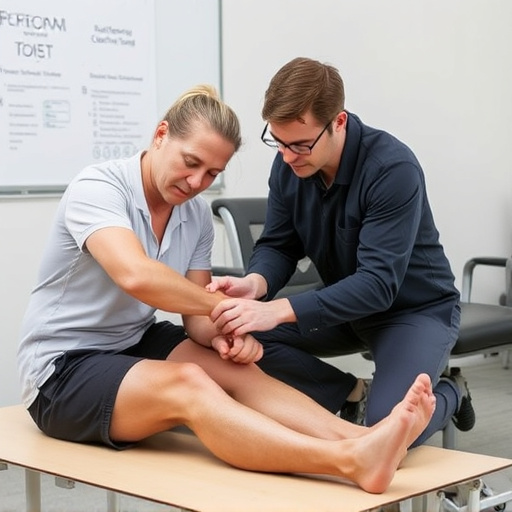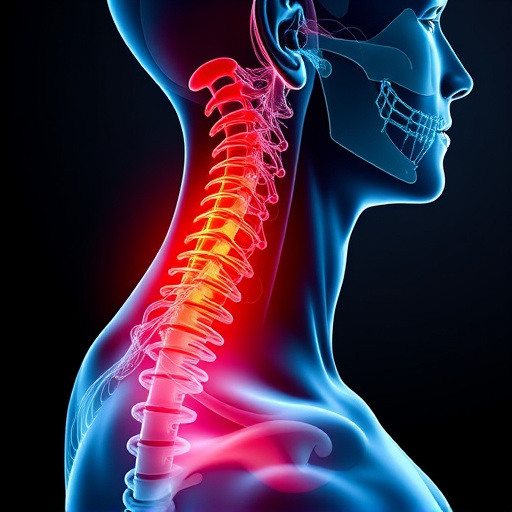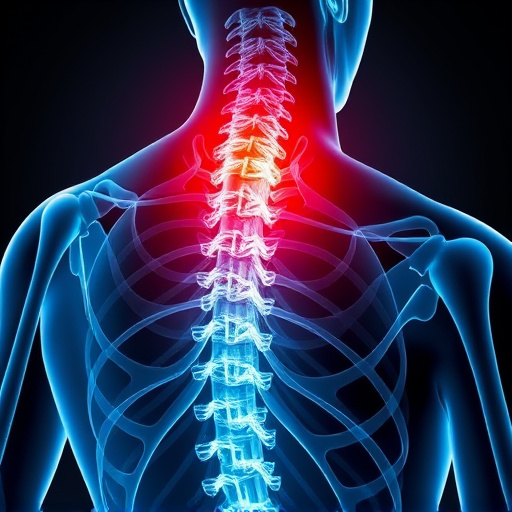Chronic pain management programs offer comprehensive solutions tailored to individual needs, combining medication, physical therapy, and psychological support. These holistic approaches address symptoms and root causes, focusing on joint pain relief, education, and empowerment for long-term coping strategies. Through structured initiatives, participants gain techniques for wellness, muscle recovery, and emotional resilience, aiming not just to relieve chronic pain but to enable ultimate overcoming of the condition for improved overall wellness.
Chronic pain management programs offer a lifeline for those grappling with long-term pain. These comprehensive approaches, designed to understand and treat persistent pain, have proven effective in improving quality of life. In this article, we explore what to expect from such programs, delving into key components like multidisciplinary care, tailored treatment plans, and psychological support. We’ll also discuss the numerous benefits and realistic expectations for participants, providing insights into how these programs can transform lives affected by chronic pain.
- Understanding Chronic Pain Management Programs
- Components of Effective Chronic Pain Treatment
- Benefits and Expectations for Participants
Understanding Chronic Pain Management Programs

Chronic pain management programs are designed to help individuals who experience persistent and long-lasting pain. These programs take a holistic approach, addressing not just the symptoms but also the underlying causes of chronic pain. By understanding the complex nature of chronic pain, these programs aim to provide effective strategies for managing and alleviating pain over time. Participants can expect a combination of treatments tailored to their specific needs, including medication management, physical therapy, and psychological support.
The primary goal is to improve quality of life by reducing pain intensity and enabling individuals to resume their daily activities. Joint pain relief, often a significant concern, is addressed through specialized exercises and manual therapies like spinal adjustments, which can help restore mobility and alleviate discomfort. Auto accident recovery, for instance, benefits from these comprehensive programs that cater to the unique challenges faced by those involved in such incidents. Through personalized care and a multi-faceted approach, chronic pain management programs offer hope for those seeking lasting solutions beyond conventional treatments.
Components of Effective Chronic Pain Treatment

Effective chronic pain management programs typically incorporate a multi-faceted approach to address the complex nature of this condition. Firstly, these programs emphasize patient education, empowering individuals to understand their pain and learn coping strategies. This includes teaching about the mechanisms of pain perception and the role of the brain in maintaining chronic pain.
Additionally, chronic pain treatment often involves a combination of pharmacological interventions, such as medications for pain relief and inflammation reduction, alongside non-pharmacological methods like physical therapy, cognitive behavioral therapy, and mindfulness practices. Functional rehabilitation and injury rehabilitation techniques are also integral components, focusing on improving strength, flexibility, and overall function while promoting muscle recovery and reducing re-injury risks.
Benefits and Expectations for Participants

Chronic pain management programs offer a transformative path for individuals seeking lasting solutions to their persistent discomfort. By participating in these structured initiatives, participants can expect a holistic approach tailored to their unique needs. The benefits are multifaceted; from improved physical well-being and enhanced quality of life to better emotional resilience and a renewed sense of control over one’s health.
These programs provide a safe space for individuals to learn effective coping strategies, explore alternative treatments like wellness care and muscle recovery techniques, and connect with peers facing similar challenges. The ultimate goal is to offer not just chronic pain relief but also long-term tools for managing and eventually overcoming the condition, fostering a sense of empowerment and improved overall wellness.
Chronic pain management programs offer a comprehensive approach to addressing long-term pain, integrating various therapeutic methods. By understanding these programs’ key components and potential benefits, individuals can realistically expect improved quality of life and better coping strategies. These initiatives are game changers in navigating the complex landscape of chronic pain, providing tools for folks to reclaim control and enhance their overall well-being.














